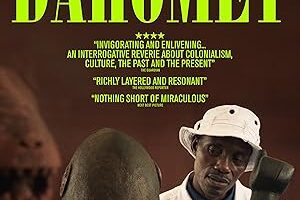Tropic Sprockets / Evil Does Not Exist
By Ian Brockway
 From the psychological master of human emotions Ryusuke Hamaguchi (Drive My Car), comes “Evil Does Not Exist.” The film is invariably meditative, but it does have anxious moments. While the film’s tranquil tone will be a challenge for some, the last quarter contains mysterious and eerie apprehension. [Showtimes at Tropiccinema.com.]
From the psychological master of human emotions Ryusuke Hamaguchi (Drive My Car), comes “Evil Does Not Exist.” The film is invariably meditative, but it does have anxious moments. While the film’s tranquil tone will be a challenge for some, the last quarter contains mysterious and eerie apprehension. [Showtimes at Tropiccinema.com.]
Director Hamaguchi is well versed in making epic length poetic analyzations of human emotions in excess of three hours, but here he is spare and minimalist using a kind of visual haiku. This shorter form serves him well, allowing the freedom to be more direct and pointed.
For the first six minutes one is shown a spiral of ever-reaching trees, a kind of organic kaleidoscope. This points to the idea of trees as tortured souls in the epic of Dante’s Inferno, or even a parallel to Woody Allen six-minute café montage in “Midnight in Paris.” Whatever the perspective, one definitely gets the concept. The trees are universal communicators of the natural world, spiritual and rare.
Takumi (Hitoshi Omika) is an odd job man. He is understandably dismayed when a high-end franchise wants to build a glamping (luxury camping) site in his small town. The franchise hires actors to speak for them thinking that it is the most cost-effective way to handle public relations.
The group holds a conference where the residents air their meaningful worries. Takahashi (Ryuji Kosaka) and Mayuzumi (Ayaka Shibutani) try their best to answer concerns, but they are soon overwhelmed. Later the two spokesmen talk in private that they want to quit as their company is unfulfilling and immoral.
The film’s final third points to a mysterious gas and a creeping poison that permeates everything in the town causing immediate death.
While the meditative passages of the film feel like a tease, it ultimately points to a claustrophobia and dread, where all events are out of control in keeping with a metaphysical horror story a la HP Lovecraft.
Hamaguchi is an analyzer of minute interactions. In small built cells of behavior, the director creates a portrait in the manner of Chuck Close, in microscopic increments to showcase ravenous consumerism in modern day Japan. This somewhat hypnotic study can be seen as a kind of ecological Hitchcock film. it is the most accessible and direct outing by Ryusuke Hamaguchi yet.
Write Ian at [email protected]
[livemarket market_name="KONK Life LiveMarket" limit=3 category=“” show_signup=0 show_more=0]




No Comment